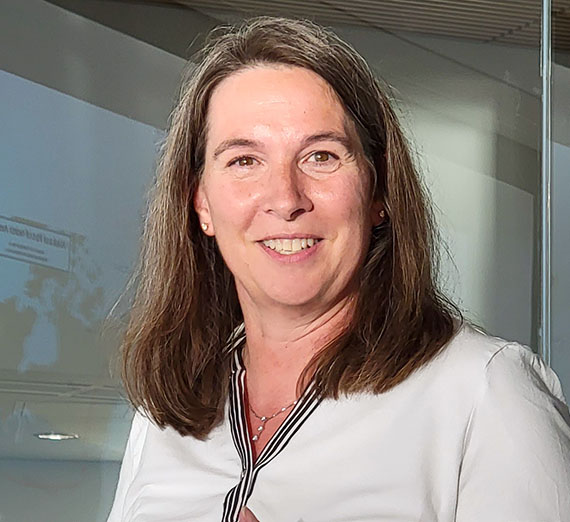Kjersten Kuhta: Embrace Your Weird

Everyone is a unique person with an individual set of interests, habits, and backgrounds. Kjersten Kuhta ('89, mechanical engineering) calls appreciating one's own uniqueness "embracing your weird."
She told the inaugural participants of the SEAS Summer Immersion Program (SSIP) about some of her own "weird things" to encourage them to follow their own interests - especially into STEM fields.
"I felt like when I was a student here, or early in my career, sometimes I was the only woman and I didn't know what I want to be. That really made me out of place, and that's okay. We're all different, with different journeys," she reminded the high school students. "To see all of you here today being exposed to the opportunities [in STEM] is really, really exciting."
Kuhta is the president of MW Consulting Engineers, a firm she interned with while pursuing her bachelor's degree and has stayed with more than 30 years. "That doesn't happen anymore! Most people have three or four jobs by the time they're 35. I've been very happy I have a lot of challenges in my career that keep it new and fresh every day," she said.
MW Consulting Engineers designs complex systems in buildings such as the Bollier Center for Integrated Science & Engineering, where SSIP took place. Kuhta pointed out that her work involves a variety of engineers: civil engineers for structure and interaction with the outside environment, electrical engineers for power integration and systems controls, mechanical engineers on physical motors and pumps to move air, water and heat.
"This building is the 'Integrated Science and Engineering' building and it's fabulous because it brings people together to work in teams. That's really for me what the world has been about," she said.
That joy of working with other people made Kuhta think she might study sociology at Gonzaga. Her advisor looked at her math skills and convinced her to take calculus and physics, where she met STEM-oriented people. While the classes were challenging, the experience also helped her realize she wanted to learn more in the natural sciences.
"Take that calculus or chemistry class, that helps you figure out what you like or don't like," she advised the students. "I thought or a while I would be a physics major, until we got to electricity and magnetism and circuits and I thought, 'I don't get this!' And I started to think about what I liked – the hands-on things that I can visualize like pumps and motors. So that's how I found myself.
"There are amazing choices in engineering and STEM fields. And there are opportunities for people who can do math and are creative. Be weird, embrace it," Kuhta said.
